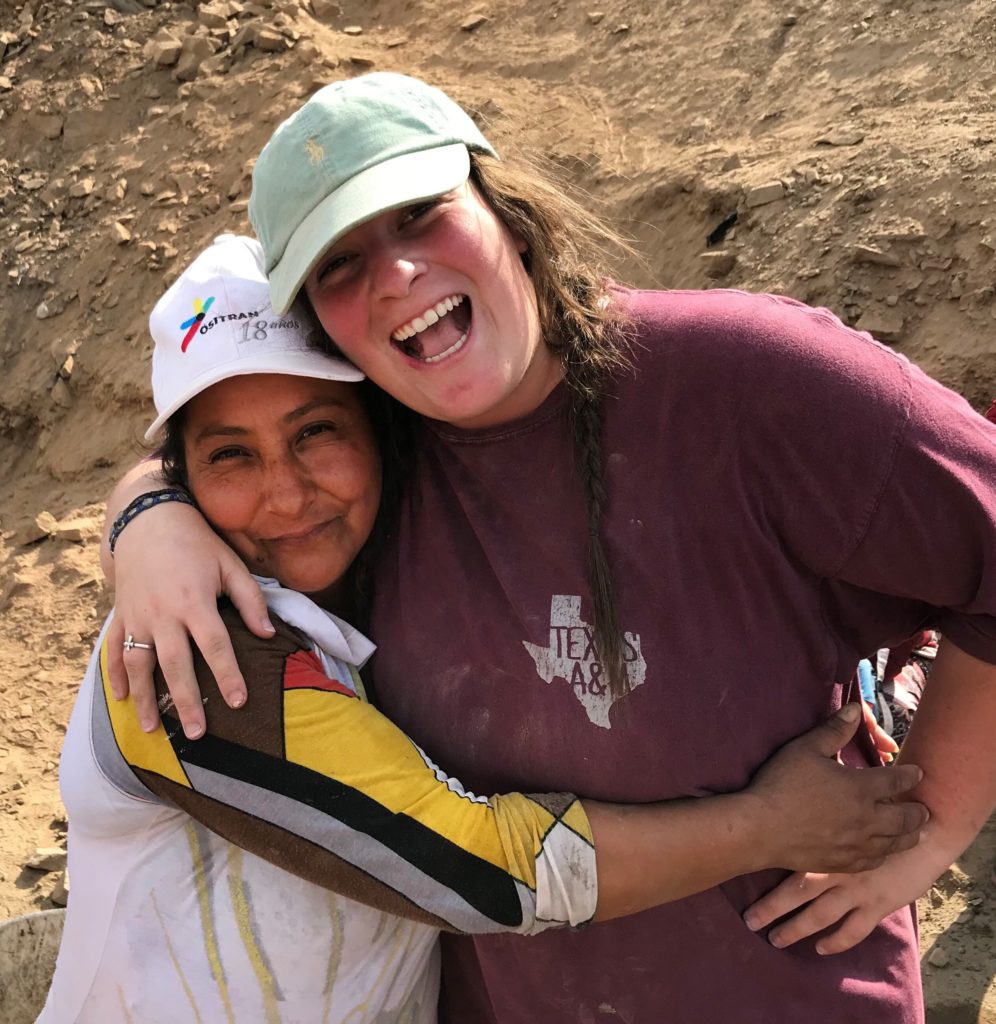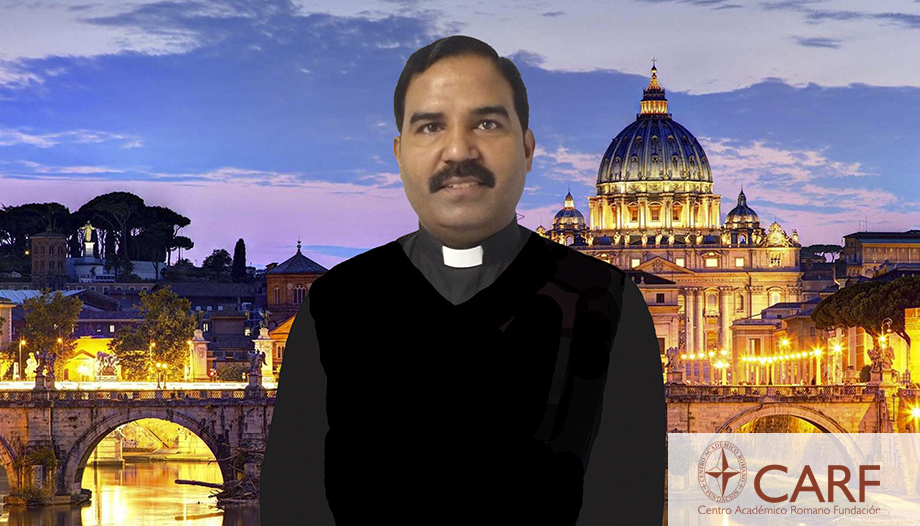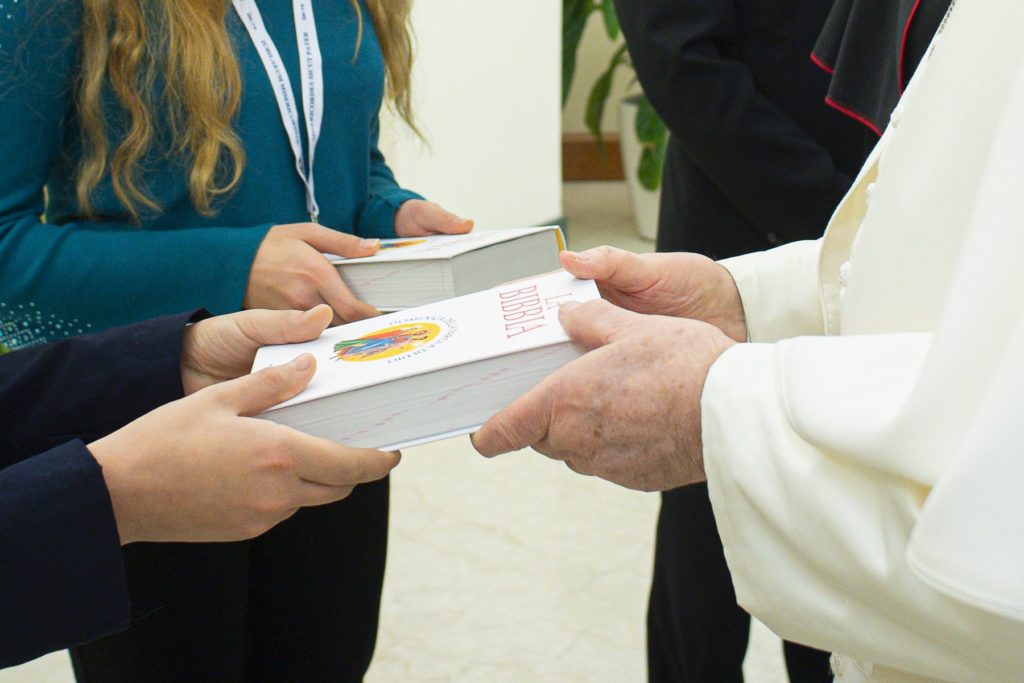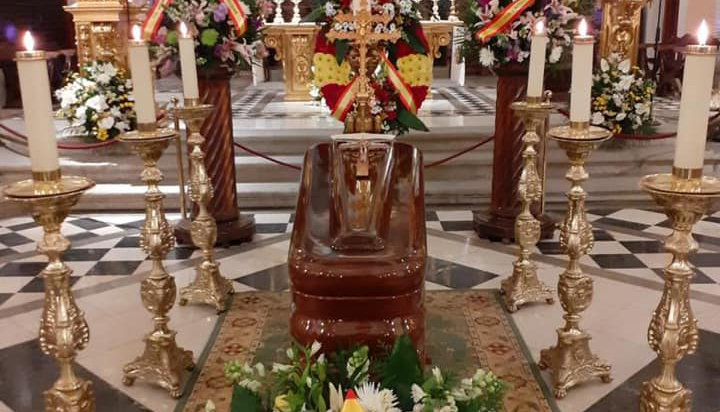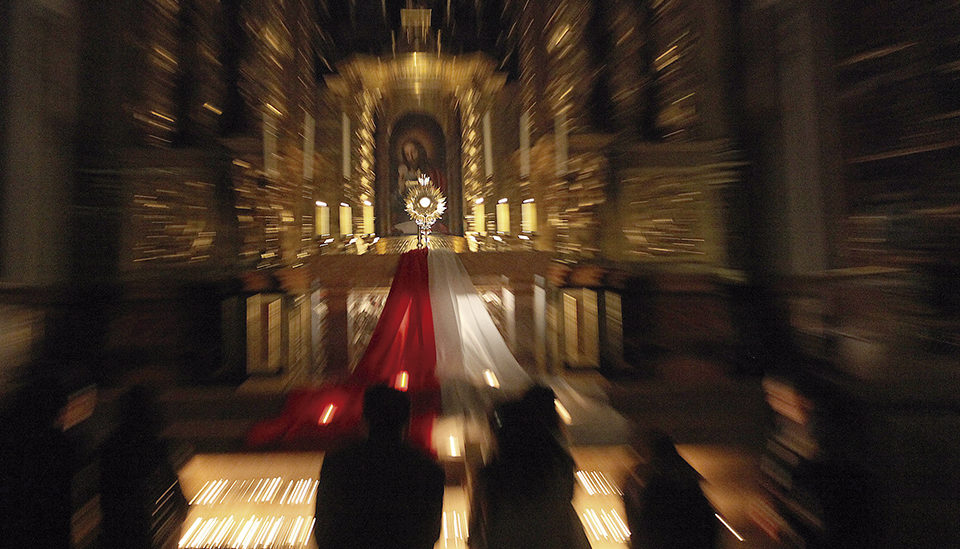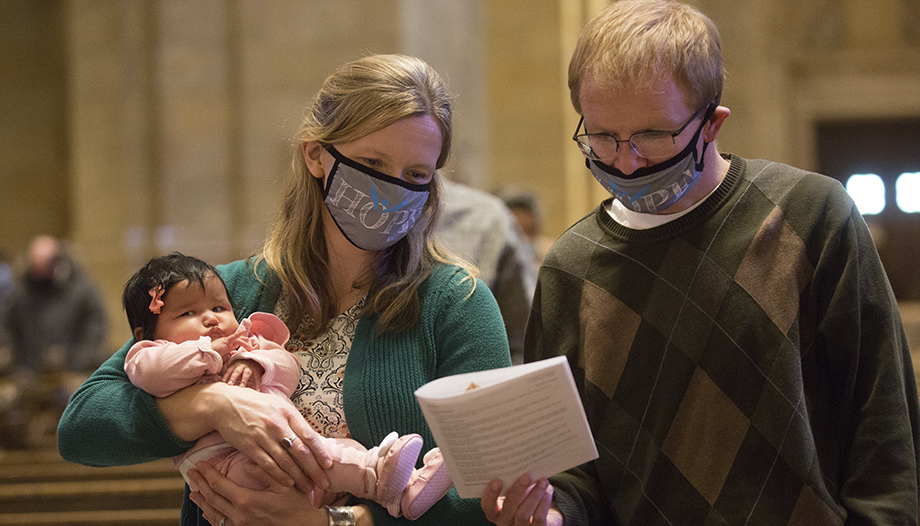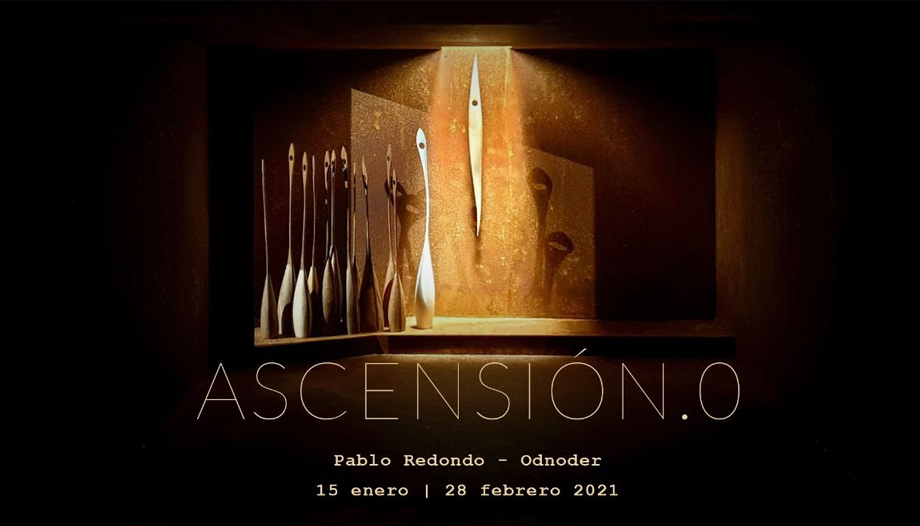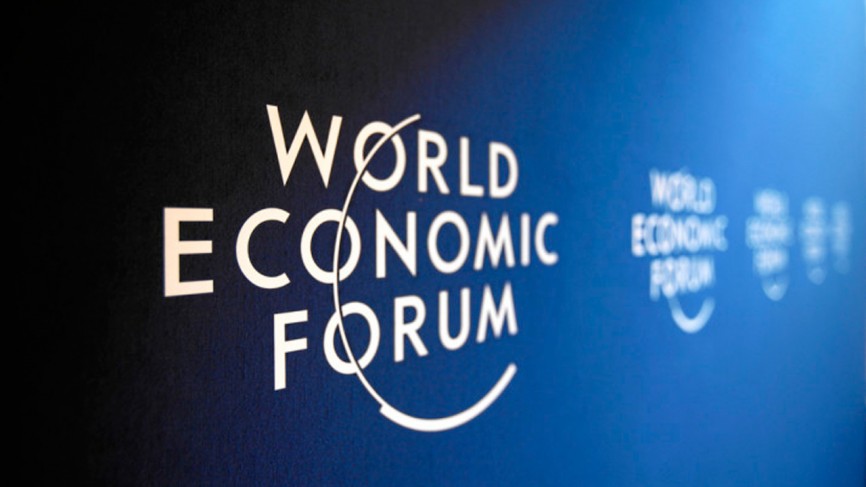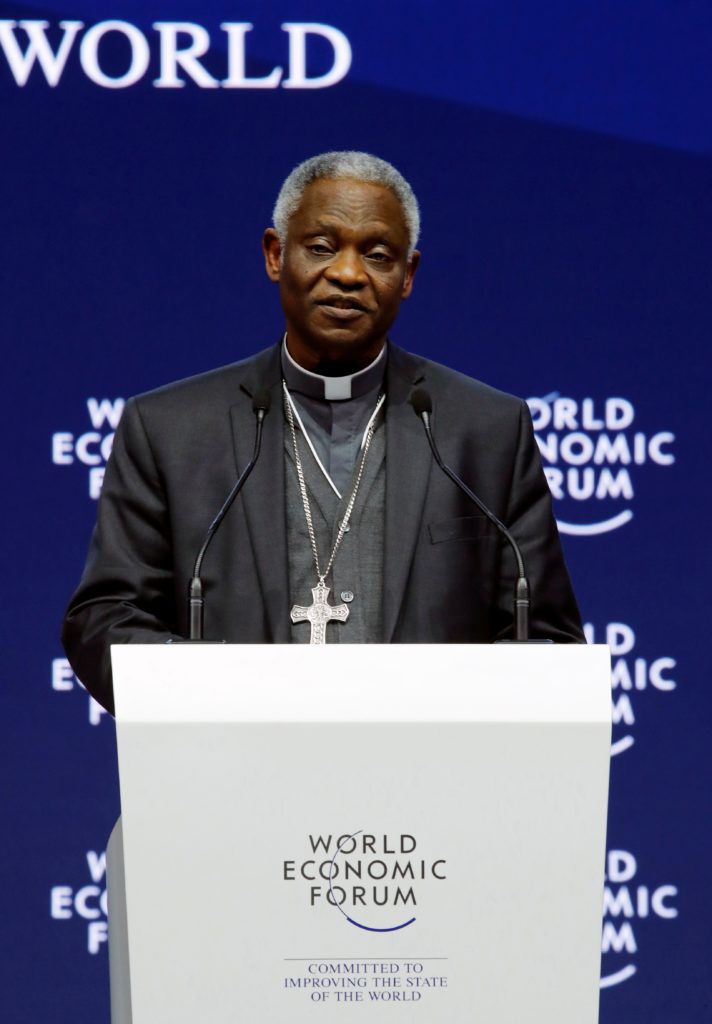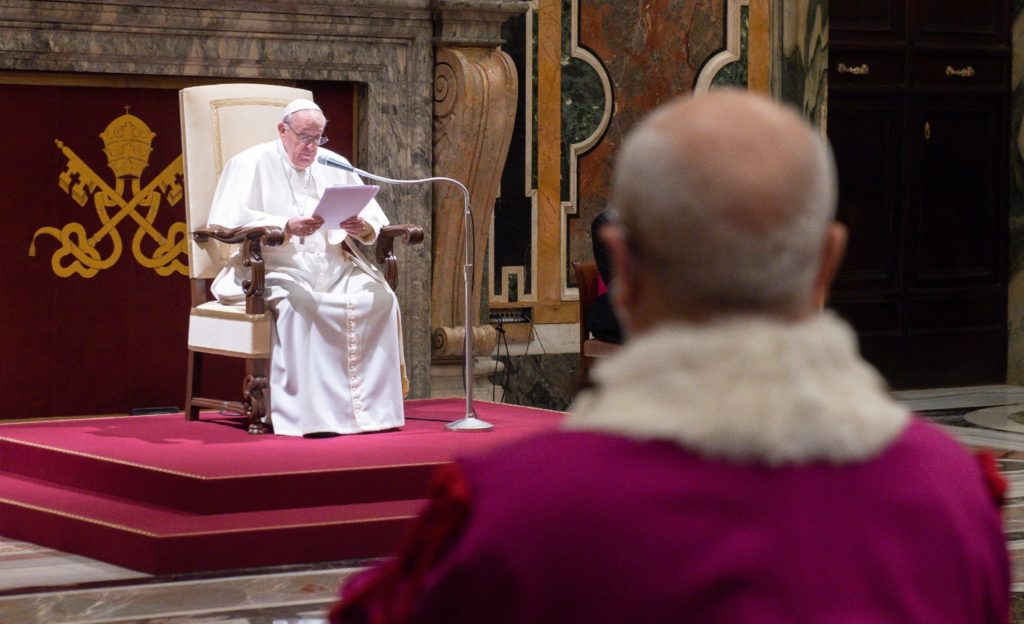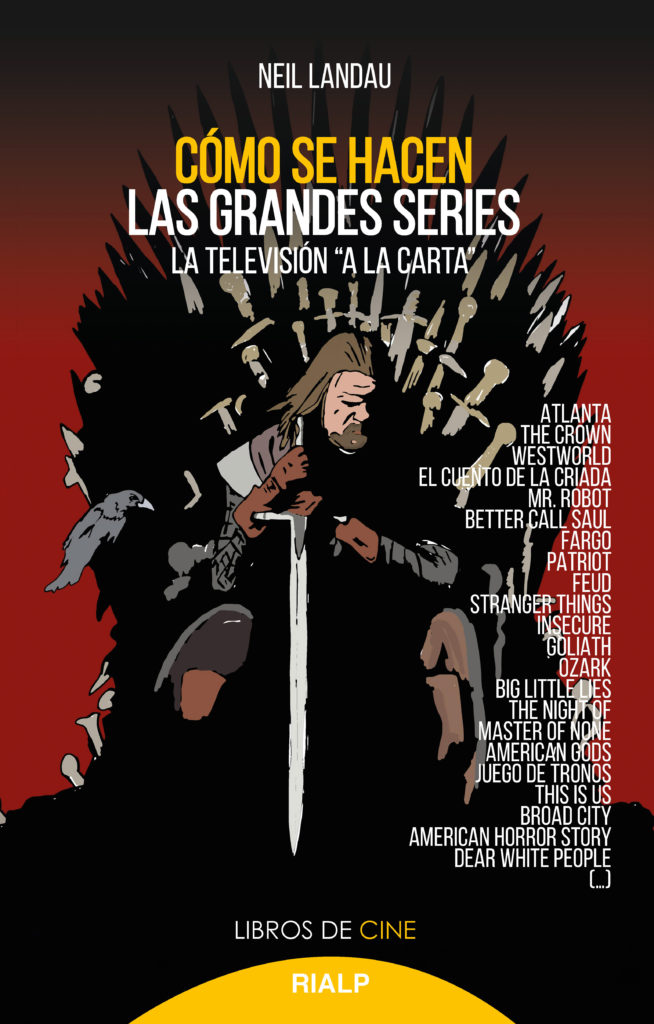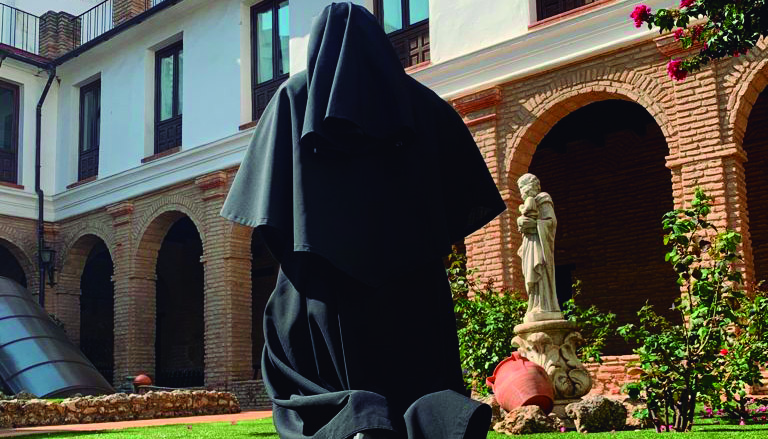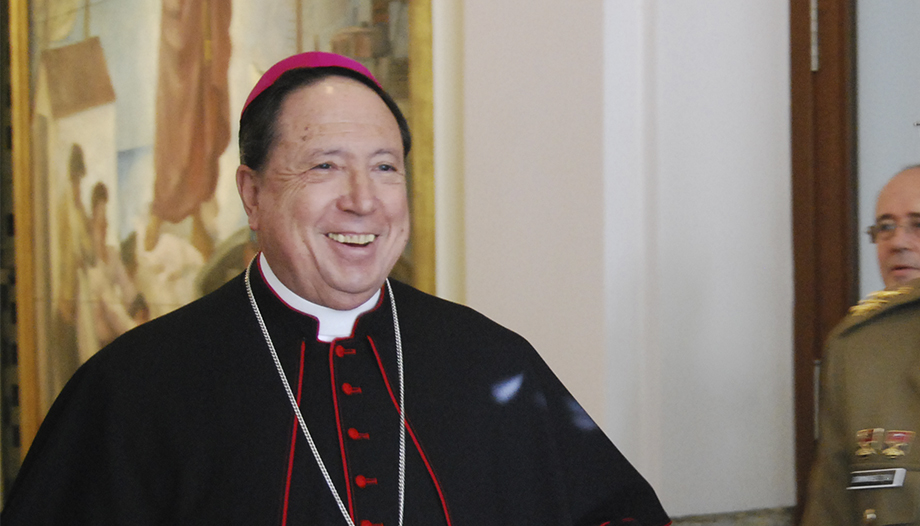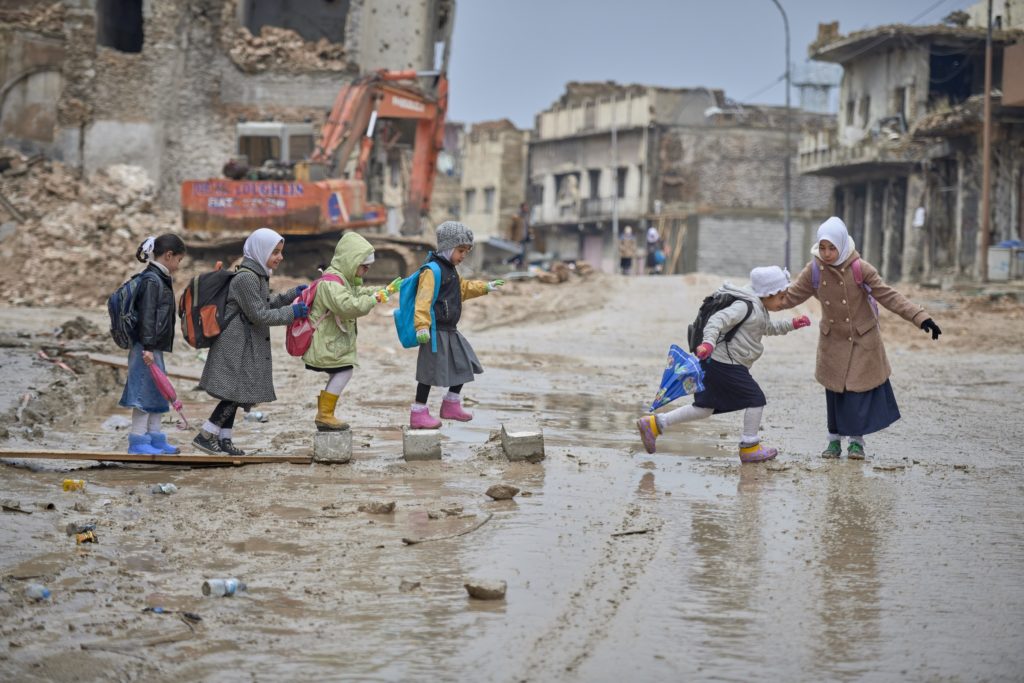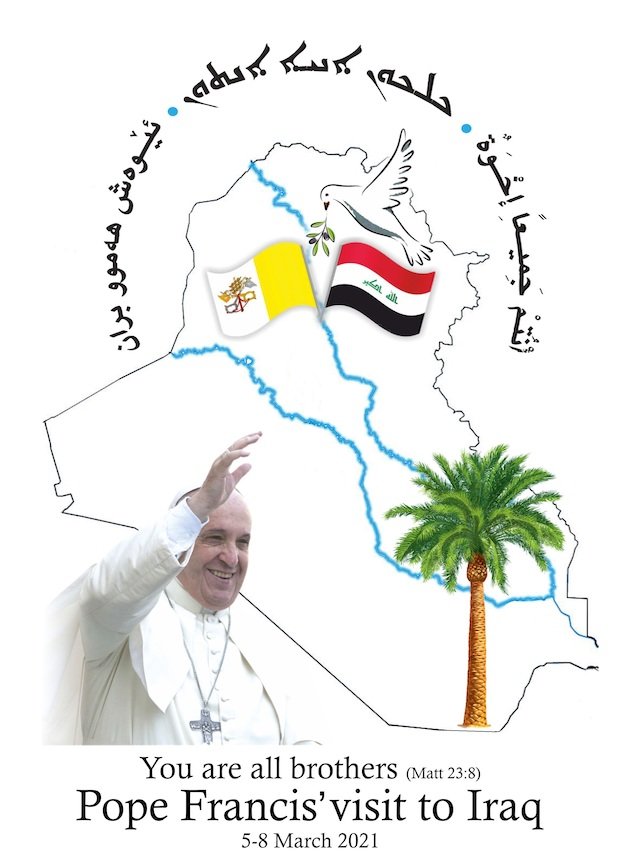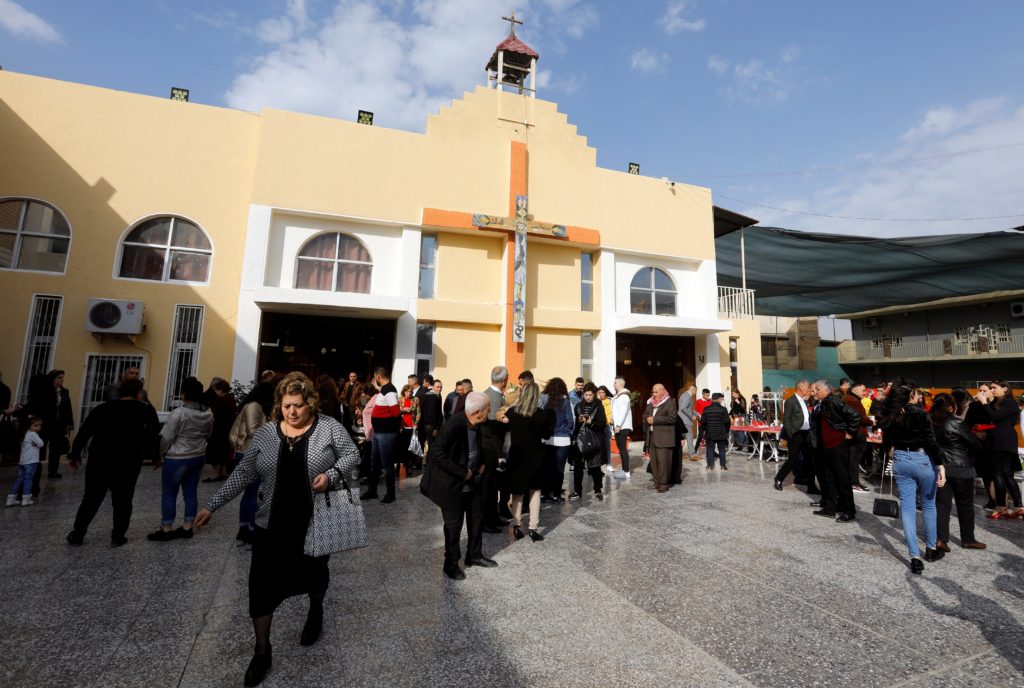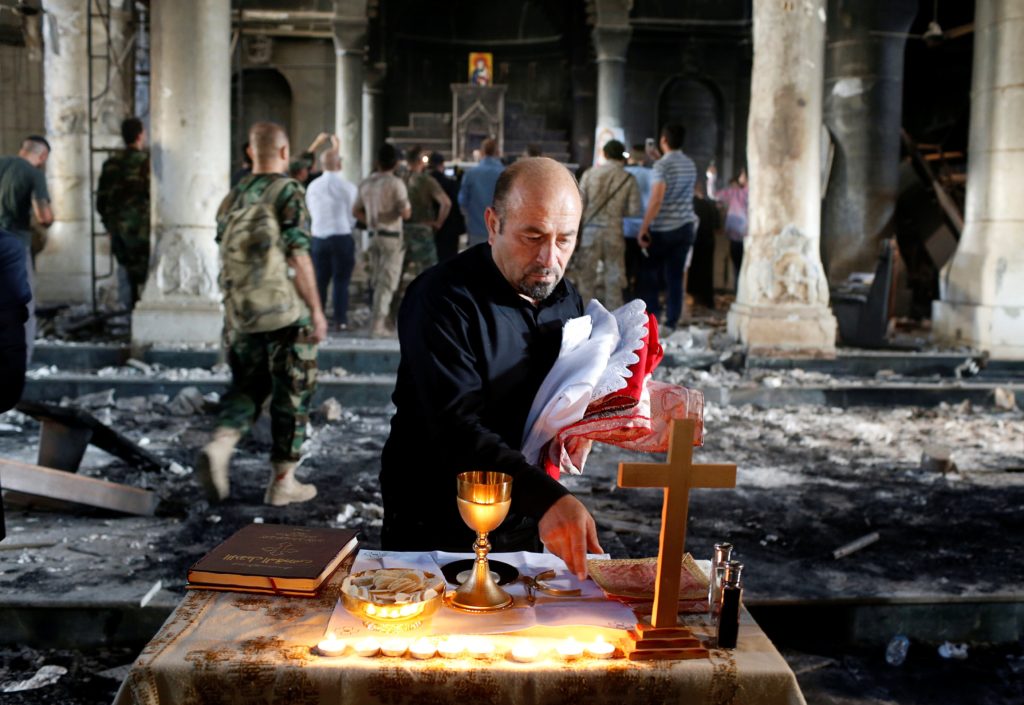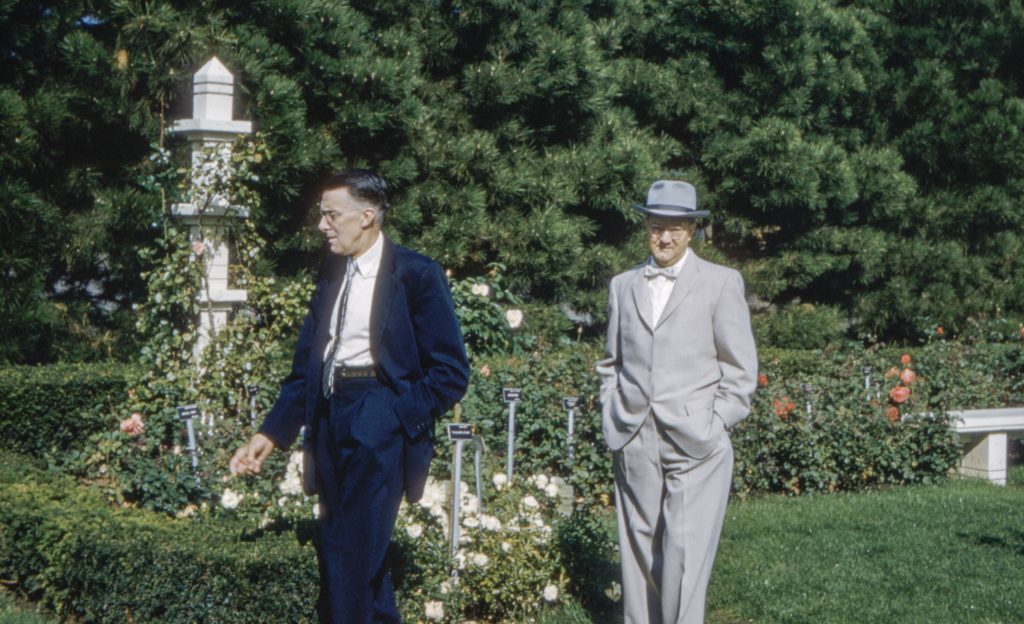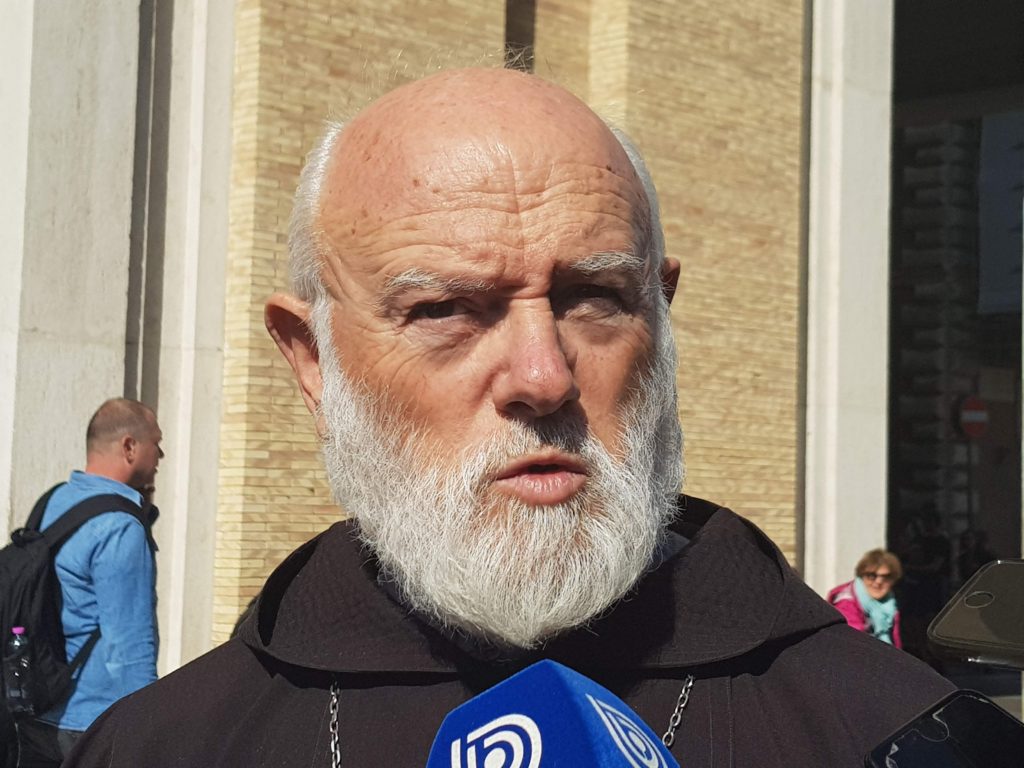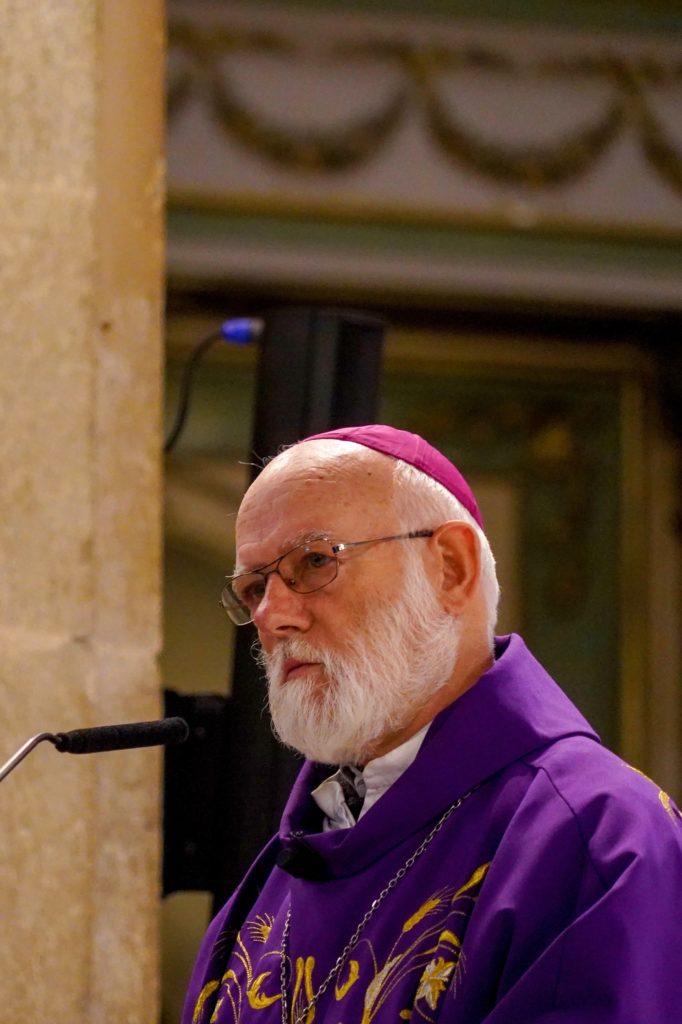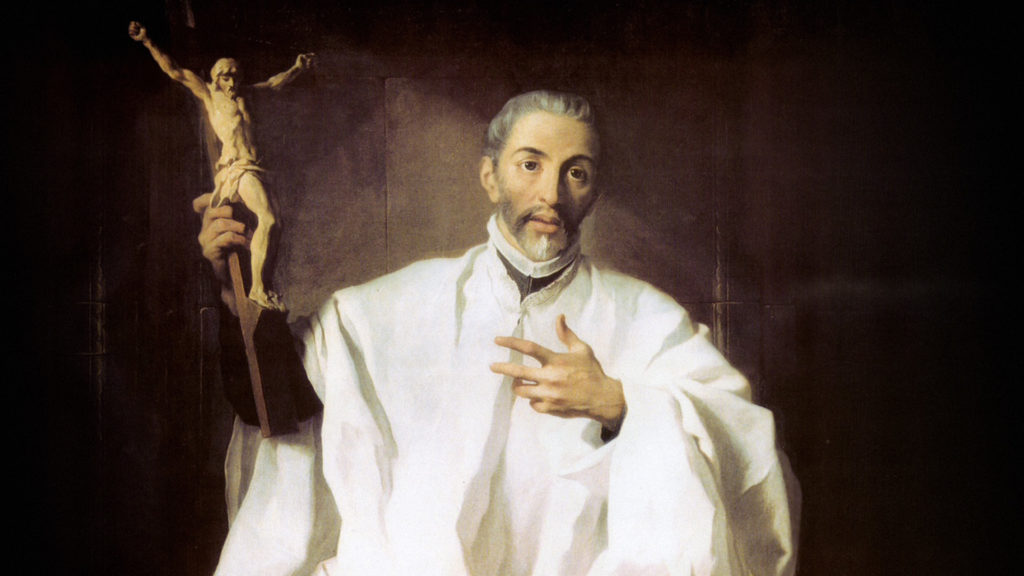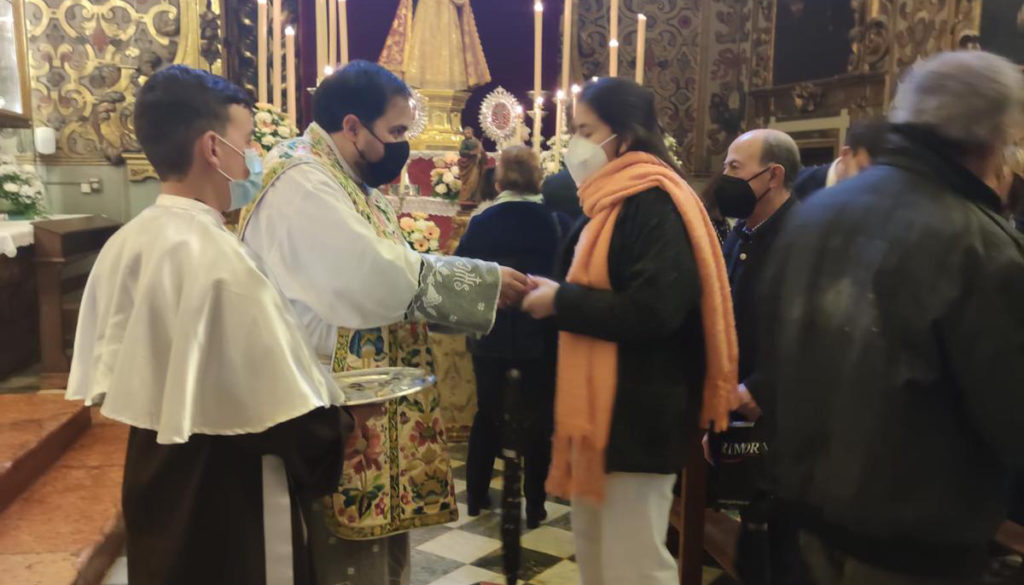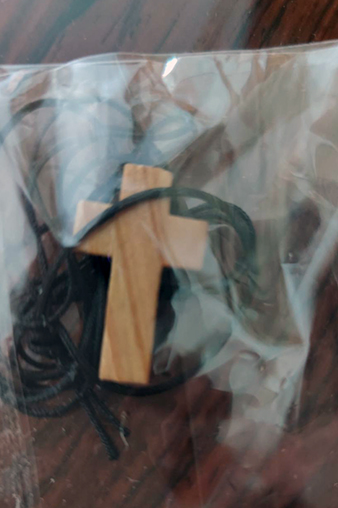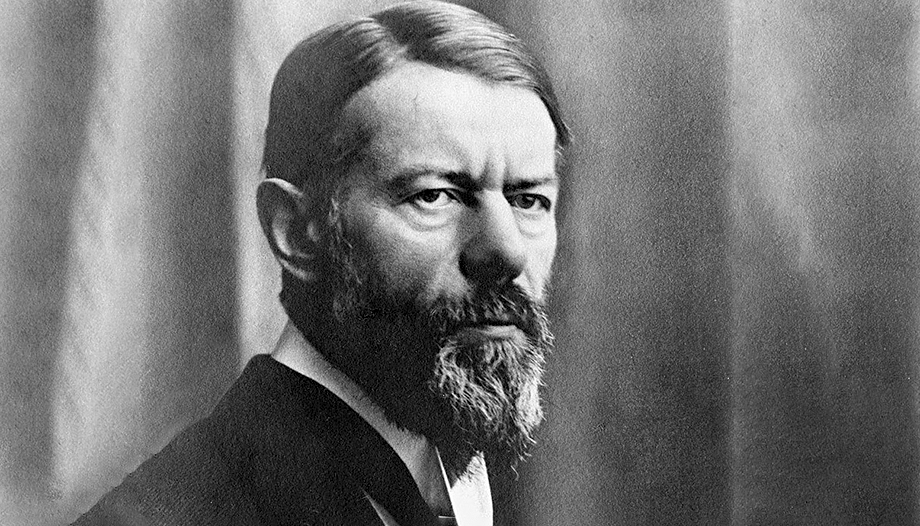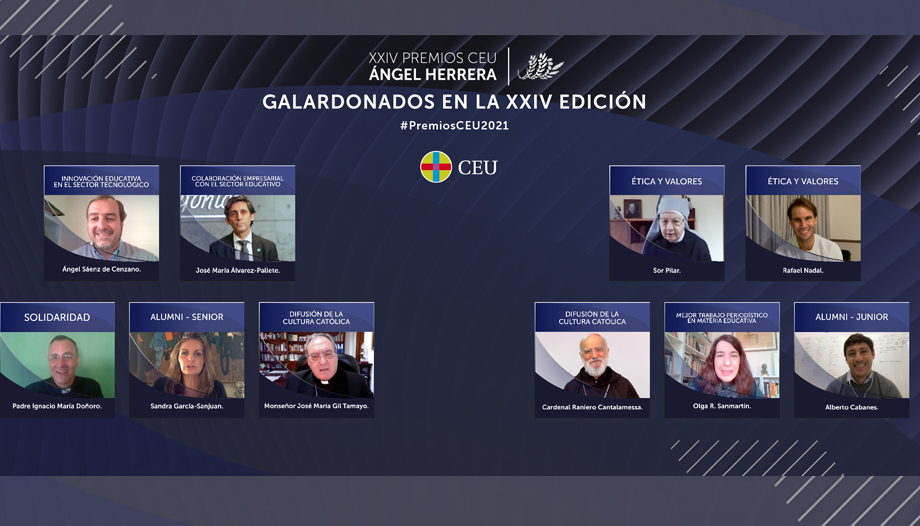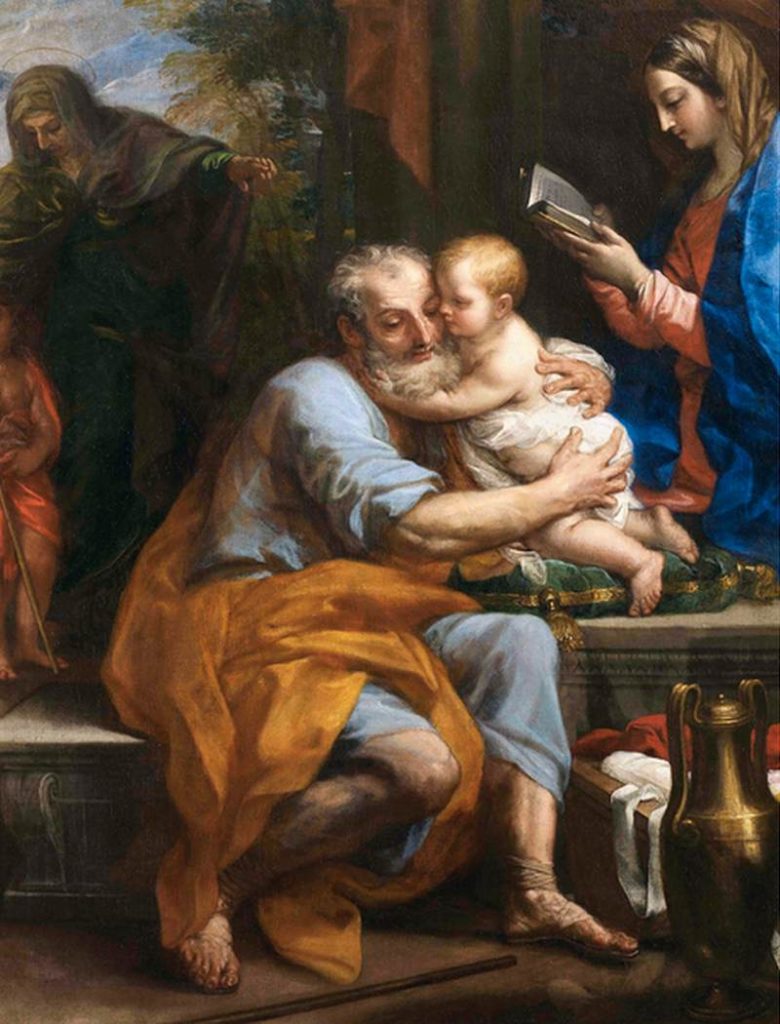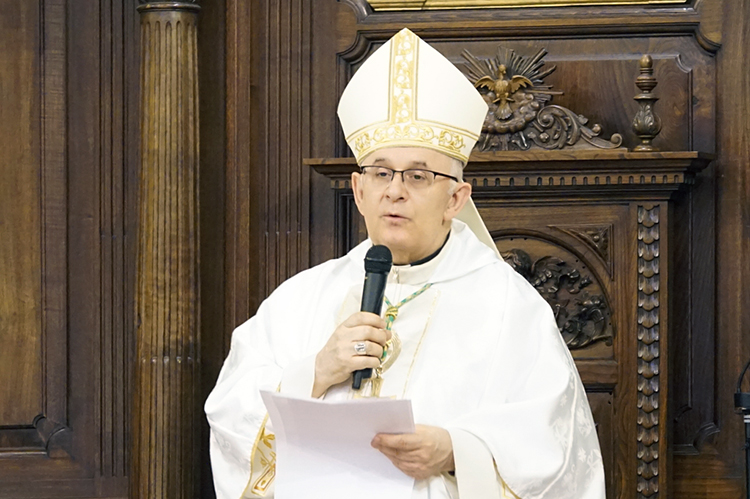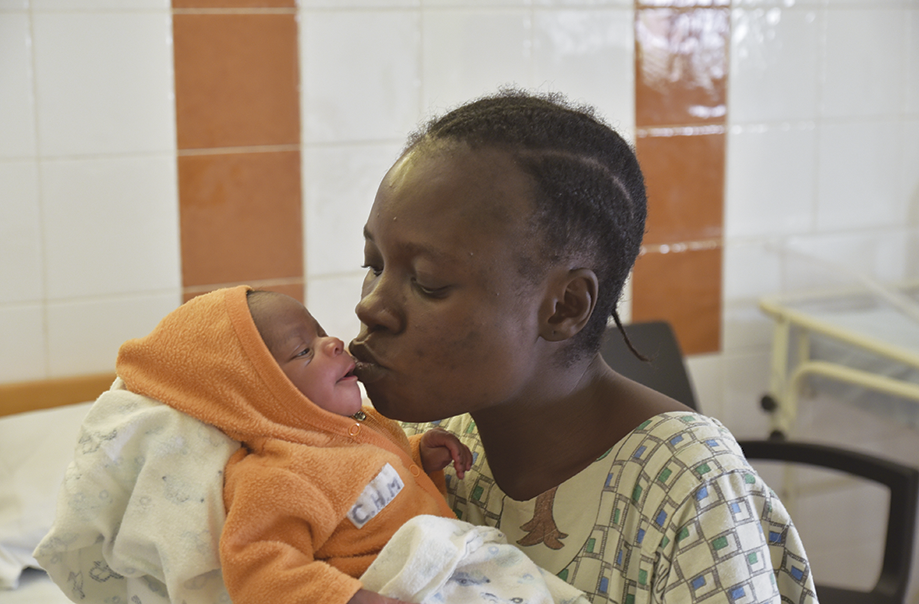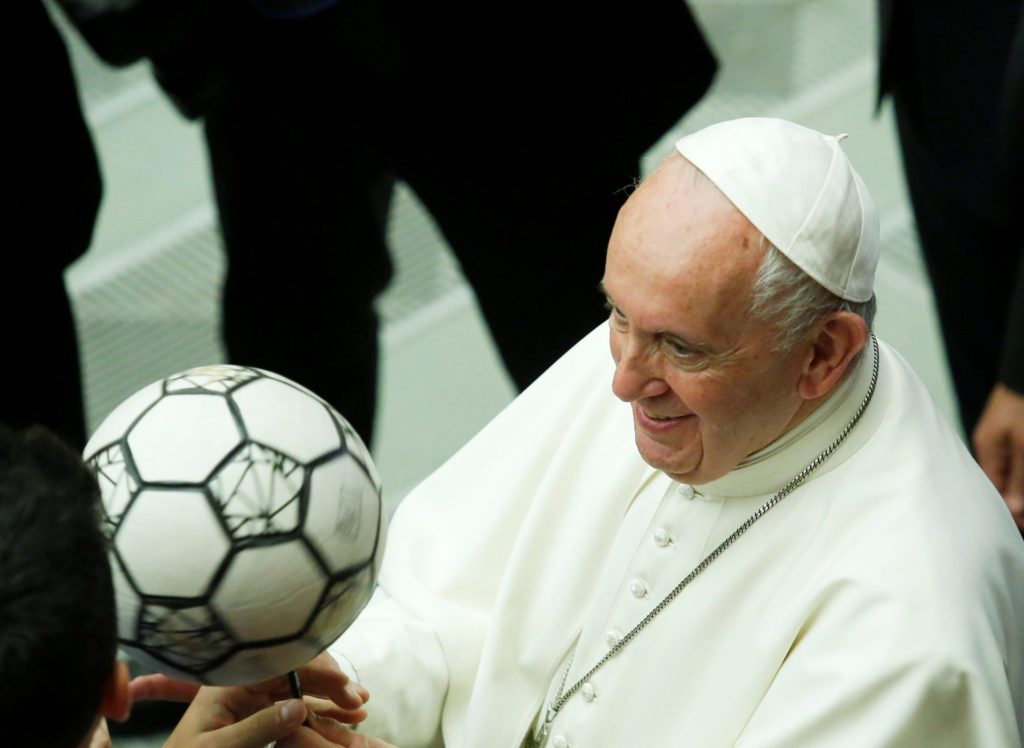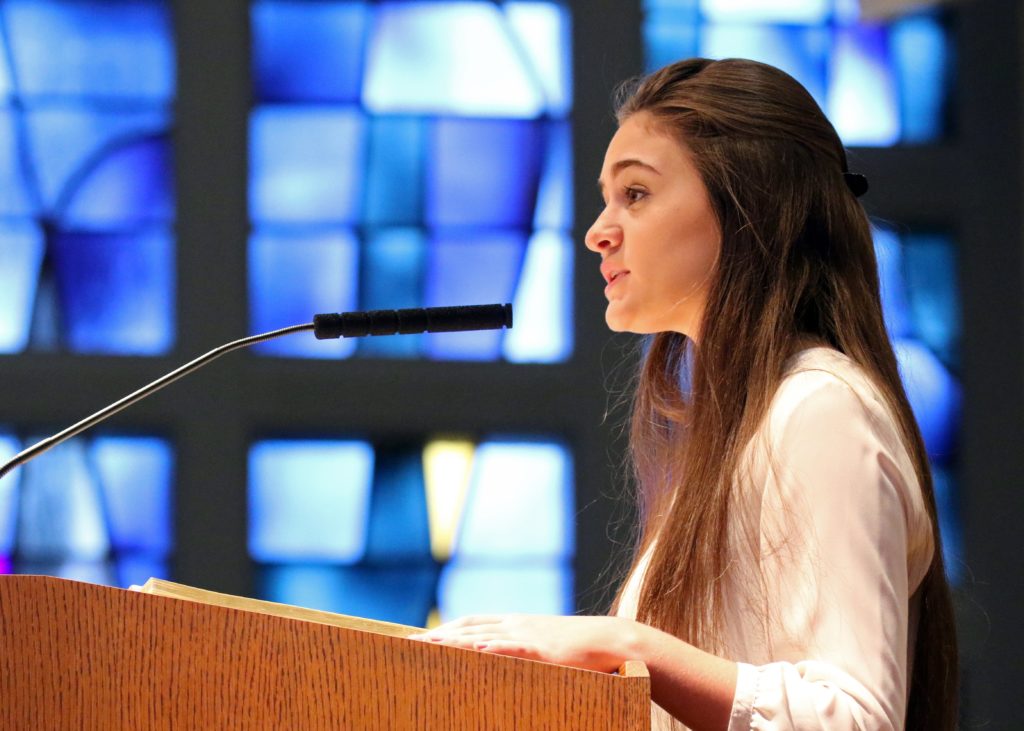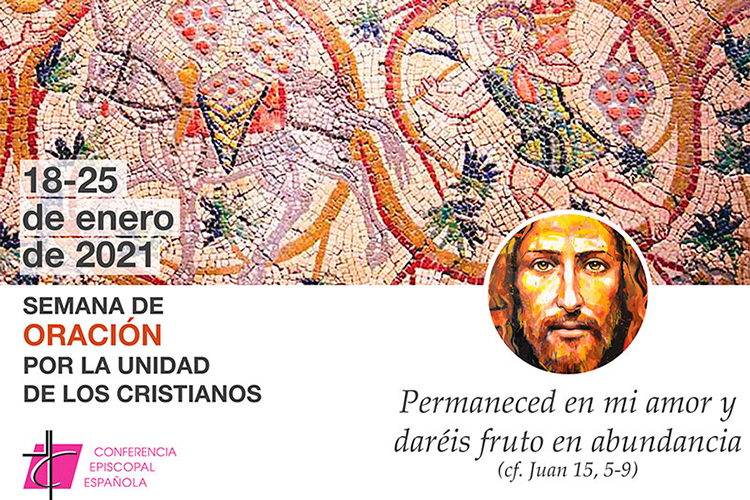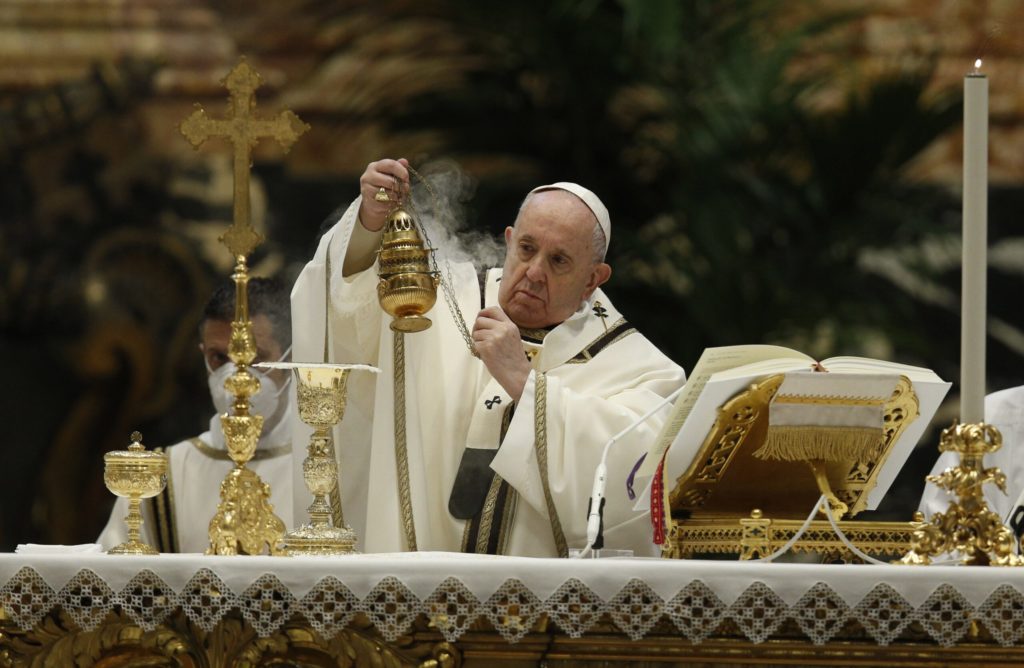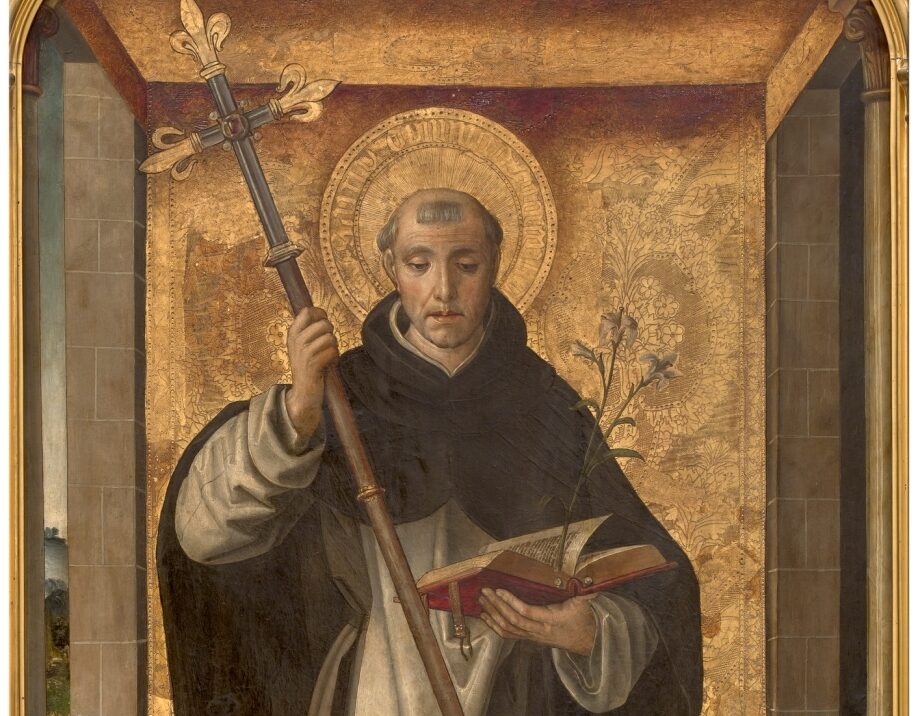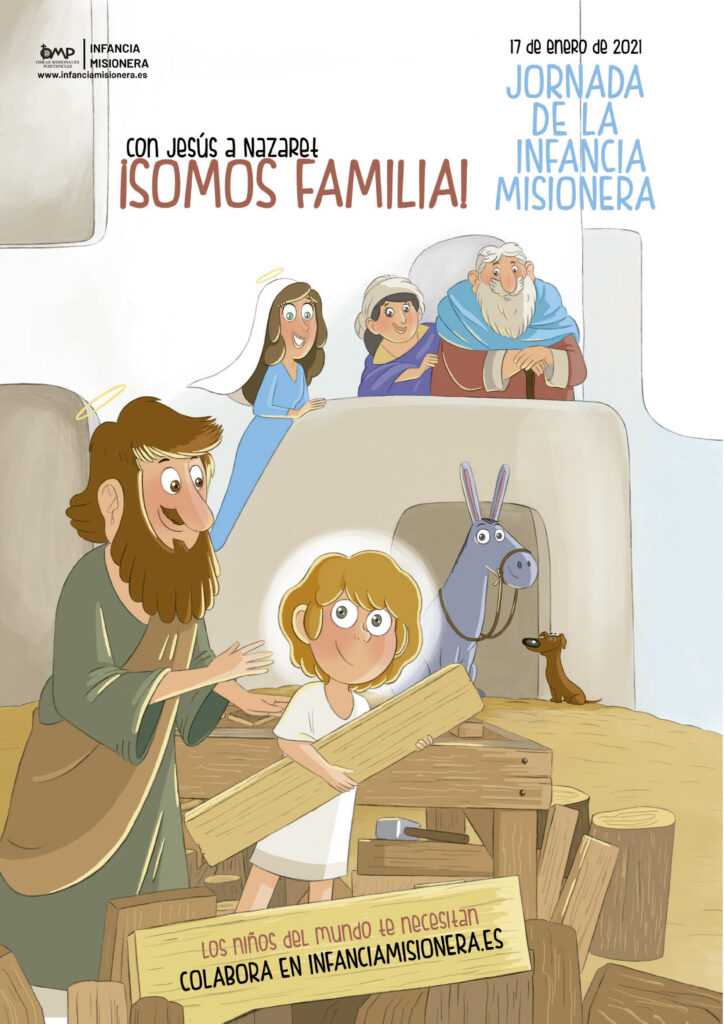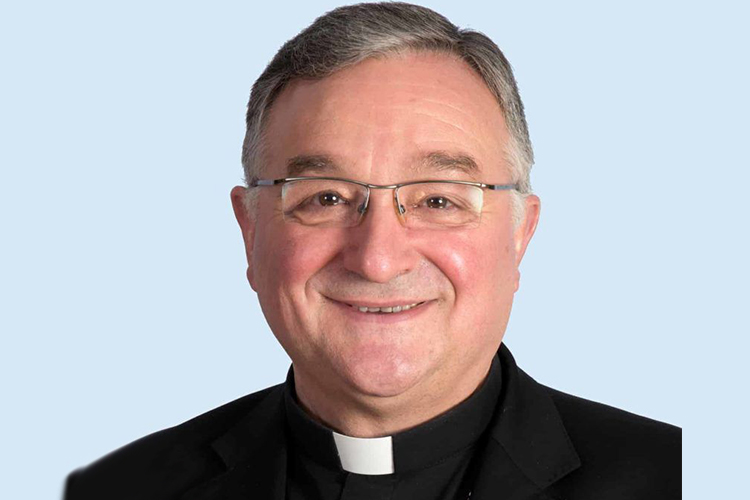With a father's heart: this is how Joseph loved Jesus, who is called in the four Gospels "the son of Joseph".
The two evangelists, Matthew and Luke, who made his figure evident, refer little, but enough to understand what kind of father he was and the mission that Providence entrusted to him.
We know that he was a humble carpenter (cf. Mt 13:55), betrothed to Mary (cf. Mt 1,18; Lc 1.27); a "just man" (Mt 1:19), always ready to do the will of God as manifested in his law (cf. Lc 2:22,27,39) and through the four dreams he had (cf. Mt 1,20; 2,13.19.22). After a long and hard journey from Nazareth to Bethlehem, he saw the birth of the Messiah in a manger, because elsewhere "there was no place for them" (Lc 2,7). He witnessed the worship of the shepherds (cf. Lc 2:8-20) and of the Magi (cf. Mt2:1-12), representing respectively the people of Israel and the pagan peoples.
He had the courage to assume the legal paternity of Jesus, to whom he gave the name revealed to him by the angel: "You shall name him Jesus, for he will save his people from their sins" (Mt 1,21). As we know, among ancient peoples, giving a name to a person or thing meant acquiring ownership, as Adam did in the Genesis account (cf. 2:19-20).
In the temple, forty days after the birth, Joseph, together with the mother, presented the Child to the Lord and listened in amazement to the prophecy that Simeon pronounced about Jesus and Mary (cf. Lc 2,22-35). To protect Jesus from Herod, he remained in Egypt as a foreigner (cf. Mt 2,13-18). Back in his homeland, he lived in a hidden way in the small and unknown village of Nazareth, in Galilee - from where, it was said: "No prophet comes out" and "nothing good can come out" (cf. Jn 7:52; 1:46) - far from Bethlehem, his hometown, and from Jerusalem, where the temple was located. When, during a pilgrimage to Jerusalem, they lost Jesus, who was twelve years old, he and Mary searched for him in anguish and found him in the temple while he was arguing with the doctors of the law (cf. Lc 2,41-50).
After Mary, Mother of God, no saint occupies as much space in the papal Magisterium as Joseph, her spouse. My predecessors have deepened the message contained in the little data transmitted by the Gospels in order to highlight his central role in the history of salvation: Blessed Joseph, Mother of God, is the first saint to occupy so much space in the Pontifical Magisterium. Pius IX declared him "Patron Saint of the Catholic Church", the venerable Pío XII presented him as the "Patron Saint of Workers" and Saint John Paul II as "Custodian of the Redeemer". The people invoke him as "Patron of the good death".
For this reason, on the one hundred and fiftieth anniversary of Blessed Pius IX, on December 8, 1870, declaring him to be Patron of the Catholic ChurchI would like - as Jesus says - that "the mouth should speak of what the heart is full of" (cf. Mt 12:34), to share with you some personal reflections on this extraordinary figure, so close to our human condition. This desire has grown during these months of pandemic, in which we can experience, in the midst of the crisis that is hitting us, that "our lives are woven and sustained by ordinary people - usually forgotten - who do not appear on the covers of newspapers and magazines, nor on the great catwalks of the latest show but they are undoubtedly writing today the decisive events of our history: doctors, nurses, supermarket stockers, cleaners, caregivers, transporters, security forces, volunteers, priests, nuns and many, many others who have understood that no one is saved alone. [How many people every day show patience and instill hope, taking care not to sow panic but co-responsibility. How many fathers, mothers, grandfathers and grandmothers, teachers show our children, with small and daily gestures, how to face and go through a crisis, readapting routines, raising their eyes and encouraging prayer. How many people pray, offer and intercede for the good of all". Everyone can find in St. Joseph - the man who goes unnoticed, the man of daily, discreet and hidden presence - an intercessor, a support and a guide in times of difficulty. St. Joseph reminds us that all those who are apparently hidden or in the "second line" have an unparalleled protagonism in the history of salvation. A word of recognition and gratitude is addressed to all of them.
1. Beloved Father
The greatness of St. Joseph consists in the fact that he was the spouse of Mary and the father of Jesus. As such, he "entered into the service of the whole economy of the incarnation," as St. John Chrysostom says.
St. Paul VI observes that his paternity was concretely manifested "in having made of his life a service, a sacrifice to the mystery of the Incarnation and to the redemptive mission that is united to it; in having used the legal authority, which corresponded to him in the Holy Family, to make of it a total gift of himself, of his life, of his work; in having converted his human vocation of domestic love into the superhuman oblation of himself, of his heart and of every capacity in the love placed at the service of the Messiah born in his house".
Because of his role in the history of salvation, St. Joseph is a father who has always been loved by the Christian people, as evidenced by the fact that numerous churches throughout the world have been dedicated to him; that many religious institutes, brotherhoods and ecclesial groups are inspired by his spirituality and bear his name; and that for centuries various sacred representations have been celebrated in his honor. Many saints had a great devotion to him, among them Teresa of Avila, who took him as her advocate and intercessor, entrusting herself to him and receiving all the graces she asked for. Encouraged by her experience, the saint persuaded others to be devoted to him.
In every prayer book there is a prayer to St. Joseph. Particular invocations are addressed to him every Wednesday and especially during the month of March, traditionally dedicated to him.
The confidence of the people in St. Joseph is summed up in the expression ".Ite ad Ioseph"which refers to the time of famine in Egypt, when the people asked Pharaoh for bread and he replied, "Go to Joseph and do as he tells you" (Gn 41,55). It was about Joseph the son of Jacob, whom his brothers sold out of envy (cf. Gn 37:11-28) and who - following the biblical account - subsequently became viceroy of Egypt (cf. Gn 41,41-44).
As a descendant of David (cf. Mt 1:16,20), from whose root Jesus was to spring forth according to the promise made to David by the prophet Nathan (cf. 2 Sam 7), and as the husband of Mary of Nazareth, St. Joseph is the piece that unites the Old and New Testaments.
2. Father in tenderness
Joseph saw Jesus progress day by day "in wisdom, and in stature, and in favor with God and man" (Lc 2,52). As the Lord did with Israel, so he "taught him to walk, and took him in his arms: he was to him as a father who lifts up a child to his cheeks, and stoops down to feed him" (cf. Os 11,3-4).
Jesus saw God's tenderness in Joseph: "As a father feels tenderness for his children, so the Lord feels tenderness for those who fear him" (Salt 103,13).
In the synagogue, during the prayer of the Psalms, Joseph will certainly have heard the echo that the God of Israel is a God of tenderness, that he is good to all and "his tenderness reaches out to all creatures" (Salt 145,9).
Salvation history is fulfilled by believing "against all hope" (Rm 4:18) through our weaknesses. We often think that God relies only on the good and conquering part of us, when in reality most of his designs are realized through and in spite of our weakness. This is what makes St. Paul say: "Lest I be grieved, I have a thorn in my flesh, an emissary of Satan who strikes me so that I may not be grieved. Three times I have asked the Lord to take it away from me, and he has said to me: 'My grace is sufficient for you, for my power is fully manifested in weakness'" (2 Co 12,7-9).
If this is the perspective of the economy of salvation, we must learn to accept our weakness with intense tenderness.
The Evil One makes us look at our fragility with a negative judgment, while the Spirit brings it to light with tenderness. Tenderness is the best way to touch what is fragile in us. The finger pointing and the judgment we make of others are often a sign of our inability to accept our own weakness, our own fragility. Only tenderness will save us from the work of the Accuser (cf. Ap 12,10). For this reason it is important to encounter the Mercy of God, especially in the sacrament of Reconciliation, having an experience of truth and tenderness. Paradoxically, even the Evil One can tell us the truth, but, if he does, it is to condemn us. We know, however, that the Truth that comes from God does not condemn us, but welcomes us, embraces us, sustains us, forgives us. Truth always presents itself to us as the merciful Father of the parable (cf. Lc 15:11-32): he comes to meet us, restores our dignity, puts us back on our feet, celebrates with us, because "my son was dead and is alive again, he was lost and is found" (v. 24).
Even through Joseph's anguish, God's will, his story, his plan, passes through. Thus Joseph teaches us that having faith in God also includes believing that He can act even through our fears, our frailties, our weaknesses. And he teaches us that, in the midst of the storms of life, we should not be afraid to hand over the helm of our boat to God. Sometimes we would like to have everything under control, but He always has a wider view.
3. Father in obedience
Just as God did with Mary when He revealed His plan of salvation, He also revealed His designs to Joseph and He did it through dreams, which in the Bible, as in all ancient peoples, were considered one of the means by which God manifested His will.
Joseph was very distressed by Mary's incomprehensible pregnancy; he did not want to "denounce her publicly", but decided to "break off their engagement in secret" (Mt 1,19). In the first dream the angel helped him to resolve his grave dilemma: "Do not be afraid to accept Mary your wife, for that which is begotten in her is of the Holy Spirit. She will give birth to a son, and you shall call his name Jesus, for he will save his people from their sins" (Mt 1,20-21). His response was immediate: "When Joseph awoke from sleep, he did as the angel of the Lord had commanded him" (Mt 1,24). Through obedience he overcame his drama and saved Mary.
In the second dream the angel commanded Joseph, "Arise, take the child and his mother with you, and flee to Egypt; stay there until I tell you, for Herod is going to seek the child to kill him" (Mt 2,13). Joseph did not hesitate to obey, without questioning the difficulties he might encounter: "He got up, took the child and his mother by night, and went to Egypt, where he stayed until the death of Herod" (Mt 2,14-15).
In Egypt, Joseph waited with confidence and patience for the angel's promised warning to return to his country. And when in a third dream the divine messenger, after having informed him that those who were trying to kill the child were dead, commanded him to arise, to take the child and his mother with him, and to return to the land of Israel (cf. Mt 2:19-20), he once again obeyed without hesitation: "He arose, took the child and his mother, and entered the land of Israel" (Mt 2,21).
But during the return journey, "when he heard that Archelaus was reigning in Judea in place of his father Herod, he was afraid to go there and, warned in a dream - and this is the fourth time this has happened - he withdrew to the region of Galilee and went to live in a town called Nazareth" (Mt 2,22-23).
The evangelist Luke, for his part, recounted that Joseph faced the long and uncomfortable journey from Nazareth to Bethlehem, according to the census law of Emperor Caesar Augustus, in order to be registered in his hometown. And it was precisely in this circumstance that Jesus was born and registered in the census of the Empire, like all the other children (cf. Lc 2,1-7).
St. Luke, in particular, took care to emphasize that the parents of Jesus observed all the prescriptions of the law: the rites of the circumcision of Jesus, of the purification of Mary after childbirth, of the presentation of the firstborn to God (cf. 2:21-24).
In every circumstance of his life, Joseph knew how to pronounce his "I am a man".fiat"Like Mary at the Annunciation and Jesus in Gethsemane.
Joseph, in his role as head of the family, taught Jesus to be submissive to his parents, according to God's commandment (cf. Ex 20,12).
In the hidden life of Nazareth, under the guidance of Joseph, Jesus learned to do the will of the Father. That will became his daily nourishment (cf. Jn 4,34). Even in the most difficult moment of his life, which was in Gethsemane, he preferred to do the Father's will and not his own and became "obedient unto death [...] on the cross" (Flp 2,8). Therefore, the author of the Letter to the Hebrews concludes that Jesus "learned obedience by suffering" (5:8).
All these events show that Joseph "has been called by God to serve directly the person and mission of Jesus through the exercise of his fatherhood; in this way he cooperates in the fullness of time in the great mystery of redemption and is truly a 'minister of salvation'".
4. Father in the welcome
Joseph welcomed Mary without preconditions. He trusted the words of the angel. "The nobility of his heart made him subordinate to charity what he learned by law; and today, in this world where psychological, verbal and physical violence against women is patent, Joseph presents himself as a respectful, delicate man who, even though he did not have all the information, decided for Mary's fame, dignity and life. And, in his doubt of how to do the best, God helped him to choose by enlightening his judgment".
Many times events occur in our lives whose meaning we do not understand. Our first reaction is often one of disappointment and rebellion. Joseph puts aside his reasoning to make way for what happens and, however mysterious it may seem to him, he accepts it, takes responsibility and reconciles himself with his own history. If we do not reconcile ourselves with our history, we will not even be able to take the next step, because we will always be prisoners of our expectations and the resulting disappointments.
Joseph's spiritual life does not show us a way that explainsbut a way that welcomes. It is only from this acceptance, from this reconciliation, that we can also intuit a greater story, a deeper meaning. The fiery words of Job seem to echo, who, when faced with his wife's invitation to rebel against all the evil that befell him, replied, "If we accept good things from God, shall we not accept evil things?" (Jb 2,10).
Joseph is not a man who resigns himself passively. He is a courageous and strong protagonist. Welcoming is a way in which the gift of strength that comes to us from the Holy Spirit is manifested in our lives. Only the Lord can give us the strength to accept life as it is, to make room even for that contradictory, unexpected and disappointing part of existence.
The coming of Jesus in our midst is a gift from the Father, so that each of us can be reconciled with the flesh of our own history, even if we do not fully understand it.
As God said to our saint: "Joseph, son of David, do not be afraid" (Mt 1:20), seems to repeat to us too: "Do not be afraid!". We have to put aside our anger and disappointment, and make room - without any worldly resignation and with a fortitude full of hope - for what we have not chosen, but is there. Welcoming life in this way introduces us to a hidden meaning. The life of each of us can miraculously begin again, if we find the courage to live it according to what the Gospel tells us. And it does not matter if everything now seems to have taken a wrong turn and if some issues are irreversible. God can make flowers bloom among the rocks. Even when our conscience reproaches us for something, He "is greater than our conscience and knows everything" (1 Jn 3,20).
Christian realism, which rejects nothing that exists, returns once again. Reality, in its mysterious irreducibility and complexity, is the bearer of a sense of existence with its lights and shadows. This makes the apostle Paul affirm: "We know that all things work together for good to those who love God" (Rm 8,28). And St. Augustine adds: "Even that which we call evil (etiam illud quod malum dicitur)". In this general perspective, faith gives meaning to every happy or sad event.
So, far be it from us to think that believing means finding easy solutions that console. The faith that Christ taught us is, instead, what we see in St. Joseph, who did not look for shortcuts, but faced "with open eyes" what was happening to him, taking responsibility in the first person.
Joseph's welcome invites us to welcome others, without exclusion, just as they are, with preference for the weak, because God chooses what is weak (cf. 1 Co 1:27), is "father of the fatherless and defender of widows" (Salt 68:6) and commands us to love the stranger. I would like to imagine that Jesus took from Joseph's attitudes the example for the parable of the prodigal son and the merciful father (cf. Lc 15,11-32).
5. Father of creative courage
If the first stage of all true inner healing is to embrace one's own history, that is, to make space within ourselves even for what we have not chosen in our life, we need to add another important characteristic: creative courage. This arises especially when we encounter difficulties. In fact, when we are faced with a problem we can either stop and give up, or we can figure it out in some way. Sometimes difficulties are precisely those that bring out resources in each of us that we did not even think we had.
Many times, reading the "infancy Gospels", we wonder why God did not intervene directly and clearly. But God acts through events and persons. Joseph was the man through whom God dealt with the beginnings of redemptive history. He was the real "miracle" by which God saved the Child and his mother. Heaven intervened by trusting in the creative courage of this man, who, when he arrived in Bethlehem and found no place where Mary could give birth, settled in a stable and arranged it until it became as welcoming a place as possible for the Son of God who was coming into the world (cf. Lc 2,6-7). Faced with the imminent danger of Herod, who wanted to kill the Child, Joseph was once again alerted in a dream to protect him, and in the middle of the night he organized the flight to Egypt (cf. Mt 2,13-14).
A superficial reading of these stories always gives the impression that the world is at the mercy of the strong and powerful, but the "good news" of the Gospel is to show how, despite the arrogance and violence of earthly rulers, God always finds a way to fulfill his plan of salvation. Even our life sometimes seems to be in the hands of superior forces, but the Gospel tells us that God always succeeds in saving what is important, provided that we have the same creative courage as the carpenter of Nazareth, who knew how to transform a problem into an opportunity, always putting our trust in Providence first.
If at times it seems that God does not help us, it does not mean that he has abandoned us, but that he trusts in us, in what we can plan, invent, find.
It is the same creative courage shown by the friends of the paralytic who, in order to present him to Jesus, lowered him from the roof (cf. Lc5,17-26). The difficulty did not stop the audacity and obstinacy of these friends. They were convinced that Jesus could heal the sick man and "when they could not bring him in because of the crowd, they went up to the top of the house and lowered him down on the stretcher through the tiles, and placed him in the midst of the crowd in front of Jesus. Jesus, seeing their faith, said to the paralytic, 'Man, your sins are forgiven'" (vv. 19-20). Jesus recognized the creative faith with which these men tried to bring their sick friend to him.
The Gospel does not give any information about the time that Mary, Joseph and the Child remained in Egypt. What is certain, however, is that they must have needed to eat, to find a house, a job. It does not take much imagination to fill the silence of the Gospel in this regard. The Holy Family had to face concrete problems like all other families, like many of our migrant brothers and sisters who even today risk their lives, forced by adversity and hunger. In this regard, I believe that St. Joseph is truly a special patron saint for all those who have to leave their homeland because of war, hatred, persecution and misery.
At the end of every story in which Joseph is the protagonist, the Gospel notes that he arose, took the Child and his mother and did what God had commanded him (cf. Mt 1,24; 2,14.21). In fact, Jesus and Mary, his mother, are the most precious treasure of our faith.
In the plan of salvation, the Son cannot be separated from the Mother, the one who "advanced in the pilgrimage of faith and faithfully maintained her union with her Son until the cross".
We must always ask ourselves if we are protecting with all our strength Jesus and Mary, who are mysteriously entrusted to our responsibility, to our care, to our custody. The Son of the Almighty comes into the world assuming a condition of great weakness. He needs Joseph to be defended, protected, cared for, raised. God trusts in this man, as does Mary, who finds in Joseph not only the one who wants to save her life, but the one who will always watch over her and the Child. In this sense, St. Joseph cannot fail to be the Custodian of the Church, because the Church is the extension of the Body of Christ in history, and at the same time in the motherhood of the Church is manifested the motherhood of Mary. Joseph, while continuing to protect the Church, continues to protect the Church, and at the same time to be the mother of Mary. to the Child and his motherand we too, loving the Church, continue to love the Church, and we too, loving the Church, continue to love to the Child and his mother.
This Child is the one who will say: "I assure you that whenever you did it to one of the least of these my brethren, you did it to me" (1).Mt 25,40). Thus, every needy person, every poor person, every suffering person, every dying person, every foreigner, every prisoner, every sick person are "the Child" that Joseph continues to guard. That is why St. Joseph is invoked as protector of the destitute, the needy, the exiled, the afflicted, the poor, the dying. And it is for the same reason that the Church cannot fail to love the least of these, because Jesus has placed his preference in them, he identifies himself personally with them. From Joseph we must learn the same care and responsibility: to love the Child and his mother; to love the sacraments and charity; to love the Church and the poor. In each of these realities is always the Child and his mother.
6. Working parent
One aspect that characterizes St. Joseph and that has been emphasized since the time of the first social encyclical, the Rerum novarum of Leo XIII, is his relationship with work. St. Joseph was a carpenter who worked honestly to ensure the livelihood of his family. From him, Jesus learned the value, dignity and joy of what it means to eat the bread that is the fruit of one's own labor.
In our present age, in which work seems to have once again become an urgent social issue and unemployment sometimes reaches impressive levels, even in those nations that for decades have experienced a certain well-being, it is necessary, with a renewed awareness, to understand the meaning of work that gives dignity and of which our saint is an exemplary patron.
Work becomes a participation in the very work of salvation, an opportunity to hasten the coming of the Kingdom, to develop one's own potential and qualities, placing them at the service of society and communion. Work becomes an occasion of fulfillment not only for oneself, but above all for that original nucleus of society which is the family. A family without work is more exposed to difficulties, tensions, fractures and even to the desperate and despairing temptation of dissolution. How can we speak of human dignity without committing ourselves to ensuring that each and every person has the possibility of a dignified livelihood?
The person who works, whatever his or her task, collaborates with God himself, becomes a bit of a creator of the world around us. The crisis of our time, which is an economic, social, cultural and spiritual crisis, can represent for everyone a call to rediscover the meaning, importance and necessity of work in order to give rise to a new "normality" in which no one is excluded. The work of St. Joseph reminds us that God made man himself did not disdain work. The loss of work that affects so many brothers and sisters, and which has increased in recent times due to the Covid-19 pandemic, should be a call to review our priorities. Let us implore St. Joseph the Worker to find ways that will lead us to say: No young person, no person, no family without work!
7. Father in the shadow
Polish writer Jan Dobraczyński, in his book. The shadow of the Fatherwrote a novel about the life of St. Joseph. With the evocative image of the shadow, he defines the figure of Joseph, who for Jesus is the shadow of the heavenly Father on earth: he helps him, protects him, never leaves his side to follow in his footsteps. Let us think of what Moses reminds Israel: "In the wilderness, where you saw how the Lord your God watched over you as a father watches over his son all the way" (Dt 1,31). Thus Joseph exercised fatherhood throughout his life.
No one is born a father, but becomes one. And one does not become one just by bringing a child into the world, but by taking care of it responsibly. Whenever someone assumes responsibility for the life of another, in a certain sense he exercises paternity with respect to him.
In today's society, children often seem to be fatherless. The Church today also needs fathers. The admonition addressed by St. Paul to the Corinthians is always timely: "You may have ten thousand instructors, but you do not have many fathers" (1 Co 4:15); and every priest or bishop should be able to say like the Apostle: "It was I who begot you for Christ by proclaiming the Gospel to you" (ibid.). And to the Galatians he says: "My children, for whom I am again in travail until Christ is formed in you" (4:19).
To be a parent means to introduce the child into the experience of life, into reality. Not to hold him, not to imprison him, not to possess him, but to make him capable of choosing, of being free, of going out. Perhaps for this reason the tradition has also given Joseph, together with the appellative of father, the appellative of "castísimo". It is not a merely affective indication, but the synthesis of an attitude that expresses the opposite of possessing. Chastity is in being free from the desire to possess in all areas of life. Only when a love is chaste is it a true love. Love that wants to possess, in the end, always becomes dangerous, imprisons, suffocates, makes unhappy. God himself loved man with chaste love, leaving him free even to make mistakes and to turn against himself. The logic of love is always a logic of freedom, and Joseph was able to love in an extraordinarily free way. He never put himself at the center. He knew how to decenter himself, to put Mary and Jesus at the center of his life.
Joseph's happiness is not in the logic of self-sacrifice, but in the gift of self. Frustration is never perceived in this man, but only trust. His persistent silence does not contemplate complaints, but concrete gestures of trust. The world needs fathers; it rejects masters, that is: it rejects those who want to use the possession of others to fill their own emptiness; it rejects those who confuse authority with authoritarianism, service with servility, confrontation with oppression, charity with assistance, force with destruction. Every true vocation is born of the gift of self, which is the maturation of simple sacrifice. This kind of maturity is also required in the priesthood and consecrated life. When a vocation, whether in married, celibate or virginal life, does not reach the maturity of self-giving, stopping only at the logic of sacrifice, then instead of becoming a sign of the beauty and joy of love, it runs the risk of expressing unhappiness, sadness and frustration.
Fatherhood that refuses the temptation to live the life of the children is always open to new spaces. Each child always carries with him a mystery, something unknown that can only be revealed with the help of a father who respects his freedom. A father who is aware that he completes his educational action and fully lives his fatherhood only when he has become "useless", when he sees that the child has become autonomous and walks alone on the paths of life, when he puts himself in the situation of Joseph, who always knew that the Child was not his own, but had simply been entrusted to his care. After all, that is what Jesus suggests when he says: "Do not call any of you on earth 'father,' for there is only one Father, the Father in heaven" (Mt 23,9).
Whenever we find ourselves in the condition of exercising paternity, we must remember that it is never an exercise of possession, but a "sign" that evokes a superior paternity. In a certain sense, we all find ourselves in the condition of Joseph: shadow of the one heavenly Father, who "makes the sun rise on the evil and the good and sends rain on the just and the unjust" (Mt 5,45); and shadow that follows the Son.
* * *
"Arise, take with you the child and its mother" (Mt 2:13), God said to St. Joseph.
The purpose of this Apostolic Letter is to grow in love for this great saint, so that we may be moved to implore his intercession and imitate his virtues, as well as his resolve.
In fact, the specific mission of the saints is not only to grant miracles and graces, but also to intercede for us before God, as did Abraham and Moses, as does Jesus, "the only mediator" (1 Tm 2:5), who is our "advocate" before God the Father (1 Jn 2:1), "since he lives forever to make intercession for us" (Hb 7:25; cf. Rm 8,34).
The saints help all the faithful "to the fullness of the Christian life and to the perfection of charity". Their life is a concrete proof that it is possible to live the Gospel.
Jesus said: "Learn from me, for I am meek and humble of heart" (Mt 11:29), and they in turn are examples of life to imitate. St. Paul explicitly exhorted: "Live as imitators of me" (1 Co 4,16). St. Joseph said it through his eloquent silence.
Before the example of so many saints, St. Augustine asked himself: "Can you not do what these men and women did? And so he arrived at his definitive conversion, exclaiming: "So late have I loved you, beauty so ancient and so new!
All that remains is to implore St. Joseph for the grace of graces: our conversion.
To him let us direct our prayer:
Hail, guardian of the Redeemer
and husband of the Virgin Mary.
To you God entrusted his Son,
Mary placed her trust in you,
with you Christ was forged as a man.
O blessed Joseph,
show yourself a father to us too
and guide us on the path of life.
Grant us grace, mercy and courage,
and defend us from all evil. Amen.
Rome, at St. John Lateran, December 8, Solemnity of the Immaculate Conception of the Blessed Virgin Mary, in the year 2020, the eighth of my Pontificate.
Francisco





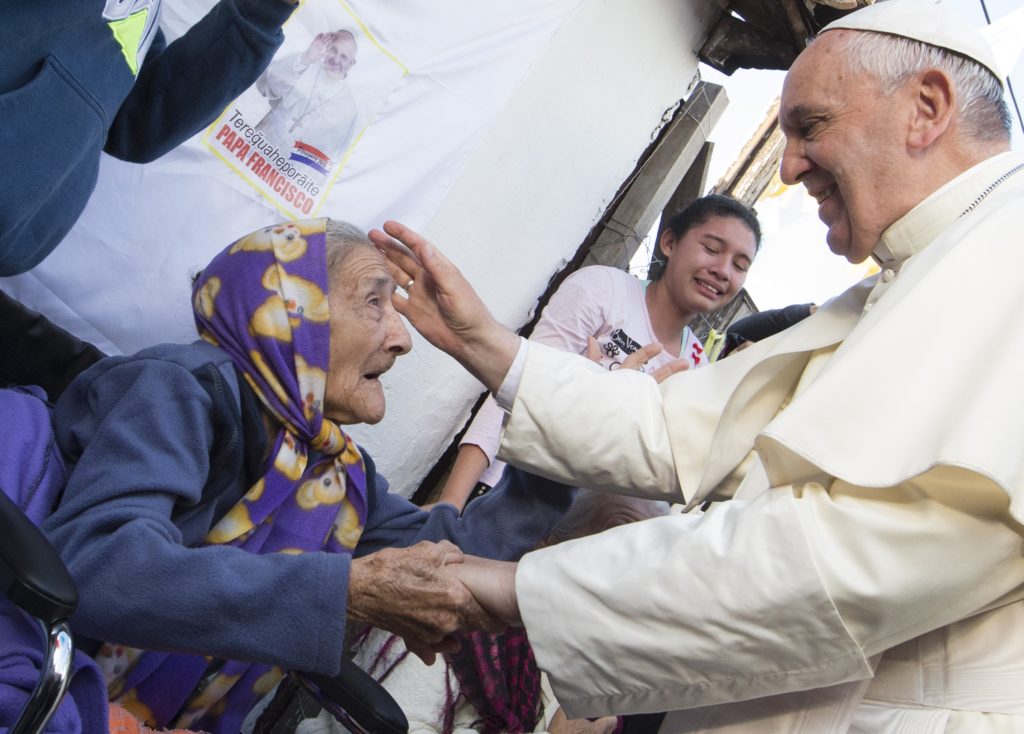






 How does the Religion class look like in the LOMLOE?
How does the Religion class look like in the LOMLOE?